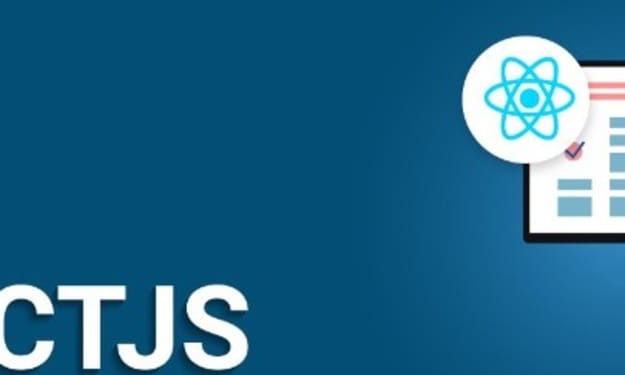
Azure Data Catalog serves as a central, metadata-driven cataloging and discovery platform within the Microsoft Azure ecosystem. Its primary purpose is to empower organizations to efficiently discover, understand, and effectively utilize their data assets. In today's data-driven landscape, organizations generate and accumulate vast amounts of data across various data sources, databases, and cloud services. Azure Data Catalog addresses the challenges of data sprawl and complexity by providing a unified repository where metadata about data assets, data sources, and data sets can be documented, organized, and shared across the organization.
Azure Data Catalog is a comprehensive solution that addresses the challenges of data management, data governance, and data discovery within modern organizations. It provides a unified platform for documenting, exploring, and collaborating on data assets, ultimately leading to better data-driven decision-making and improved data stewardship. Apart from it by obtaining a Data Engineering Course, you can advance your career in Data engineering. With this course, you can demonstrate your expertise in the basics of designing and building data pipelines, managing databases, and developing data infrastructure to meet the requirements of any organization, many more fundamental concepts, and many more.
The key purposes of Azure Data Catalog can be summarized as follows:
Data Discovery: Azure Data Catalog offers a powerful search and discovery capability, enabling users to quickly locate and access relevant data assets. It provides a comprehensive and searchable inventory of data sources, datasets, tables, columns, and other data-related objects. Users can search for data assets based on keywords, descriptions, tags, or technical attributes, making it easier to find the data they need.
Metadata Management: It serves as a centralized repository for storing metadata about data assets. Users can document key information about data, such as data lineage, data quality, data owners, and data usage, making it easier for data consumers to understand the context and relevance of the data.
Collaboration and Knowledge Sharing: Azure Data Catalog encourages collaboration and knowledge sharing among data stakeholders. Users can annotate and comment on data assets, share their insights, and provide feedback. This fosters a culture of data transparency and helps teams collaborate more effectively when working with data.
Data Governance and Compliance: It supports data governance initiatives by providing tools to enforce data policies, data classification, and data lineage tracking. Organizations can ensure that sensitive data is properly classified and protected, helping them meet regulatory compliance requirements, such as GDPR or HIPAA.
Data Catalog for Self-Service Analytics: Azure Data Catalog is invaluable for organizations embracing self-service analytics. It enables data analysts and data scientists to quickly discover and access data sources for their analyses. Users can also understand the data quality and lineage, which is critical for ensuring the accuracy and reliability of analytical results.
Data Asset Documentation: It helps organizations document their data assets comprehensively. This documentation includes technical metadata (e.g., schema, data types), business metadata (e.g., data definitions, business glossary), and operational metadata (e.g., data source location, refresh schedules). Having a well-documented data catalog aids in data governance, data stewardship, and data management.
Data Lineage and Impact Analysis: Azure Data Catalog enables users to trace the lineage of data, showing how data flows from source to destination. This lineage tracking helps organizations understand the impact of changes to data sources or transformations on downstream processes and reports.
Data Discovery and Exploration: Azure Data Catalog offers a comprehensive data discovery and exploration platform. It allows users to search for data assets across the organization based on various criteria such as keywords, descriptions, data types, and more. This search capability is crucial for enabling data consumers to find and access the data they require efficiently.
Metadata Repository: At its core, Azure Data Catalog serves as a metadata repository. Metadata is the data about data, and it plays a vital role in understanding and managing data assets. Within the catalog, metadata about data sources, datasets, tables, columns, and other data-related objects is stored. This metadata includes technical details (e.g., data schema, data lineage), business context (e.g., data definitions, business glossary terms), and operational information (e.g., data source location, refresh schedules).
Annotations and Collaboration: Azure Data Catalog encourages collaboration among data stakeholders. Users can annotate data assets with comments, descriptions, and tags. They can provide insights, share knowledge, and communicate effectively within the platform. This collaborative approach enhances data transparency, fosters teamwork, and improves data-related decision-making.
Data Governance: Data governance is a critical aspect of data management, especially in organizations dealing with sensitive or regulated data. Azure Data Catalog supports data governance initiatives by allowing organizations to define data policies, classifications, and access controls. This helps enforce data security, privacy, and compliance requirements. It also aids in data lineage tracking, helping organizations understand how data flows and transforms across different systems and processes.
Data Quality and Lineage: Understanding the quality and lineage of data is crucial for data-driven decision-making. Azure Data Catalog provides the means to document data quality metrics and lineage information. Data quality metrics can include information on data accuracy, completeness, and consistency. Lineage tracking shows how data moves through the organization, from source systems to data warehouses and analytical tools. This information is vital for assessing the trustworthiness and reliability of data assets.
Data Catalog for Self-Service Analytics: Self-service analytics empowers business users to perform data analysis and reporting without extensive IT intervention. Azure Data Catalog supports this by making it easy for data analysts and data scientists to discover and access relevant data sources. They can also assess data quality and lineage, ensuring that their analyses are based on accurate and reliable data.
Integration with Data Tools: Azure Data Catalog integrates with various data tools and platforms, making it seamless for users to access cataloged data assets within their preferred tools. This integration enhances the usability and adoption of the catalog within the organization's data ecosystem.
In summary, Azure Data Catalog is a critical tool for organizations seeking to harness the value of their data assets while managing the complexity of modern data ecosystems. It facilitates data discovery, metadata management, collaboration, and data governance, ultimately empowering organizations to make informed decisions, drive insights, and derive maximum value from their data.





Comments
There are no comments for this story
Be the first to respond and start the conversation.